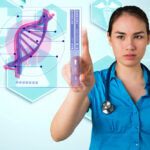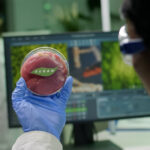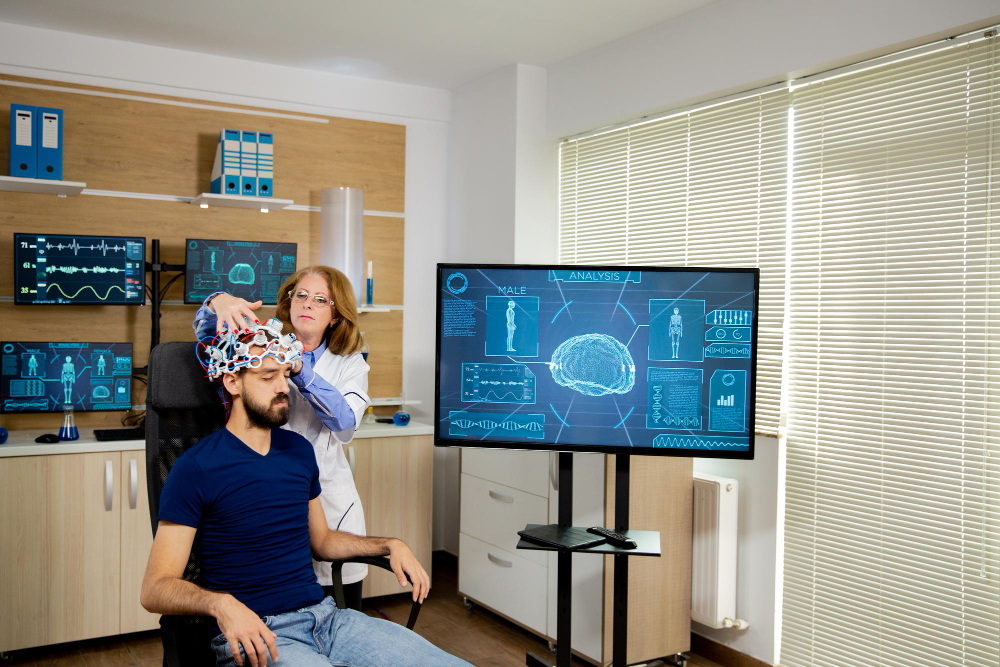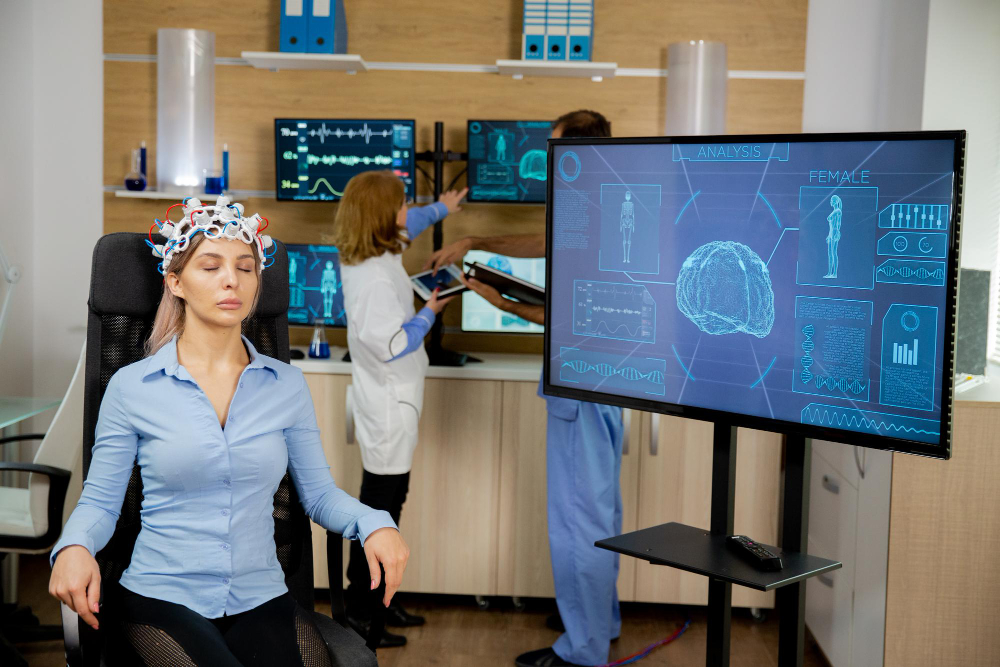Top 10 Breakthroughs in Biotechnology That Are Changing Medicine in 2025
Introduction: The New Era of Biotech Innovation
The field of biotechnology is undergoing a revolution—one that’s redefining what’s possible in healthcare. The Top 10 Breakthroughs in Biotechnology That Are Changing Medicine in 2025 showcase how science, technology, and human ingenuity are converging to reshape the future of medicine.
From gene editing and synthetic organs to AI-assisted drug design, 2025 marks a milestone year where biotech isn’t just treating diseases—it’s curing and preventing them. This article dives into the most significant innovations transforming healthcare across the globe.
How Biotechnology Is Revolutionizing Modern Medicine
Biotechnology merges biology, genetics, and computational science to understand and manipulate living systems. In medicine, it’s driving progress in:
- Precision diagnostics – Detecting diseases earlier with molecular-level accuracy.
- Personalized therapies – Tailoring treatments to an individual’s genetic code.
- Drug development – Using AI to cut years off the discovery process.
Together, these advancements are helping humanity move from reactive care to predictive, preventive healthcare.
Top 10 Breakthroughs in Biotechnology That Are Changing Medicine in 2025
1. CRISPR 3.0 Gene Editing
The third generation of CRISPR technology has achieved unprecedented accuracy in gene correction. Known as CRISPR 3.0, it allows scientists to repair faulty DNA sequences at the single-nucleotide level—potentially curing diseases like sickle cell anemia, cystic fibrosis, and muscular dystrophy.
What makes it revolutionary is its AI-guided precision, reducing off-target effects and enabling in vivo editing—directly inside human cells.
2. AI-Powered Drug Discovery
Traditional drug development can take over a decade. But in 2025, AI-driven biotechnology platforms like DeepMind’s AlphaFold and Insilico Medicine are identifying new therapeutic molecules in months.
AI models analyze protein structures and biological pathways, predicting how drugs interact with human systems. This accelerates treatment development for diseases once considered untreatable.
3. mRNA Vaccine Advancements
After the success of COVID-19 vaccines, mRNA technology continues to evolve. In 2025, biotech firms are developing mRNA-based treatments for cancer, HIV, and rare autoimmune diseases.
These vaccines teach the immune system to target specific cells, opening new doors for customized immunotherapies and preventive medicine.
4. Personalized Genomic Medicine
Every human genome tells a story—and biotechnology now decodes it faster than ever. Personalized medicine uses DNA sequencing to create individualized treatment plans based on genetic risk factors.
Startups like 23andMe Health and Illumina provide data that helps physicians predict diseases before they occur, making precision medicine the new healthcare standard.
5. Synthetic Biology for Organ Regeneration
Synthetic biology—designing life from scratch—is one of 2025’s biggest breakthroughs. Scientists are using stem cells and genetic programming to grow organs and tissues in labs, addressing organ transplant shortages.
Recent successes include bioprinted liver tissue and synthetic corneas, bringing hope to millions awaiting transplants.
6. Microbiome Engineering
Our gut health is central to immunity, metabolism, and mood. In 2025, biotech researchers are manipulating the human microbiome using engineered bacteria to treat diseases like depression, obesity, and diabetes.
Companies like Viome and Seed Health are pioneering precision probiotics—custom formulations that restore microbial balance for better health outcomes.
7. 3D Bioprinting of Tissues and Organs
3D printing has moved from manufacturing to medicine. 3D bioprinting now enables doctors to print functional tissues using a patient’s own cells. From cartilage and skin to heart valves, this technology is transforming surgical procedures and regenerative medicine.
By 2025, experimental 3D-printed mini-hearts and kidneys are already being tested for transplantation compatibility.
8. Nanobiotechnology in Targeted Therapies
Nanobiotechnology combines nanoscience and medicine to deliver drugs with pinpoint accuracy. These microscopic carriers can navigate the bloodstream and release medication directly to diseased cells, minimizing side effects.
This breakthrough is revolutionizing oncology, making chemotherapy safer and more effective through targeted nano-delivery systems.
9. Cellular Immunotherapy (CAR-T Evolution)
CAR-T therapy, once limited to certain blood cancers, has evolved. In 2025, scientists have created universal CAR-T cells that target multiple tumor types without patient-specific customization.
This advancement offers faster, more affordable immunotherapies, significantly improving survival rates for patients with aggressive cancers.
10. Wearable Biotech Sensors for Real-Time Health Tracking
Biotechnology isn’t confined to labs—it’s wearable. Next-generation biosensors continuously analyze glucose levels, stress hormones, heart rhythms, and even genetic markers.
Devices like Abbott’s Lingo and Whoop Biowear help individuals manage their health proactively, turning everyday life into a continuous medical checkup.
The Role of Artificial Intelligence in Biotech Advancements
AI acts as the brain of modern biotechnology. It analyzes complex biological data faster than any human could, identifying new correlations and treatment pathways.
Applications include:
- Predictive modeling for disease progression
- Automated genetic analysis for diagnostics
- AI-driven molecular design for faster drug development
The fusion of AI and biotech is accelerating humanity’s path toward precision medicine and longevity science.
How These Breakthroughs Are Saving Lives Today
- Cancer immunotherapy now boasts survival rates that were once unimaginable.
- Gene editing has reversed hereditary blindness in human trials.
- AI-designed drugs are in testing for Alzheimer’s and Parkinson’s disease.
- Bioprinted tissues have already been used to repair damaged organs.
Biotechnology isn’t a promise—it’s a present reality transforming lives.
Ethical and Regulatory Challenges in Modern Biotechnology
Despite progress, challenges persist:
- Genetic Privacy: Who owns your DNA data?
- Human Enhancement Ethics: Where do we draw the line between therapy and augmentation?
- Regulatory Gaps: Global laws lag behind the speed of innovation.
Governments and organizations like WHO and FDA are now collaborating to ensure safe, ethical, and inclusive biotech development.
The Future of Medicine: What’s Next for Biotech in 2030 and Beyond
The next frontier of biotechnology includes:
- AI-driven preventive medicine predicting disease before symptoms appear.
- Regenerative biology extending human lifespan.
- Cross-species organ compatibility through synthetic genetics.
By 2030, biotechnology could make chronic diseases manageable—or even curable—within a lifetime.
FAQs: Biotechnology and the Future of Medicine
Q1: What is biotechnology used for in medicine?
A1: It’s used for drug development, gene therapy, disease diagnostics, and regenerative treatments.
Q2: How does CRISPR gene editing work?
A2: CRISPR acts like molecular scissors that precisely cut and repair faulty genes.
Q3: Are biotech drugs safe?
A3: Yes. All biotech-based therapies undergo strict clinical trials and FDA approval before release.
Q4: Can biotechnology cure genetic disorders?
A4: Many inherited diseases are now treatable through advanced gene therapy.
Q5: What’s the difference between traditional medicine and biotech medicine?
A5: Traditional medicine treats symptoms; biotechnology targets diseases at their biological root.
Q6: Will biotech make healthcare more expensive?
A6: Initially, yes—but as technologies scale, costs will decrease dramatically, improving access globally.
Conclusion: The Promise of a Healthier Tomorrow
The Top 10 Breakthroughs in Biotechnology That Are Changing Medicine in 2025 prove that we are entering a golden age of scientific discovery.
From gene editing to AI diagnostics, biotechnology is redefining what it means to heal, prevent, and live well. The fusion of biology, data, and human compassion promises not only longer lives—but healthier, smarter, and more connected ones.











